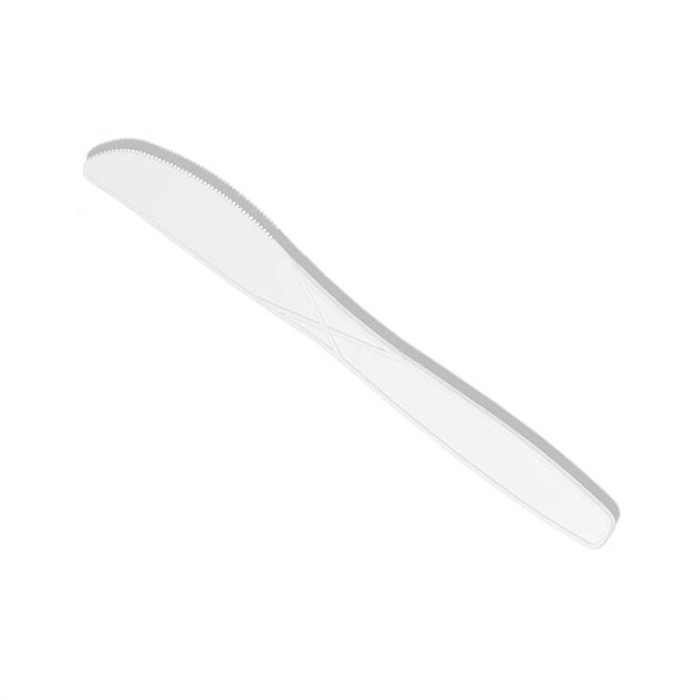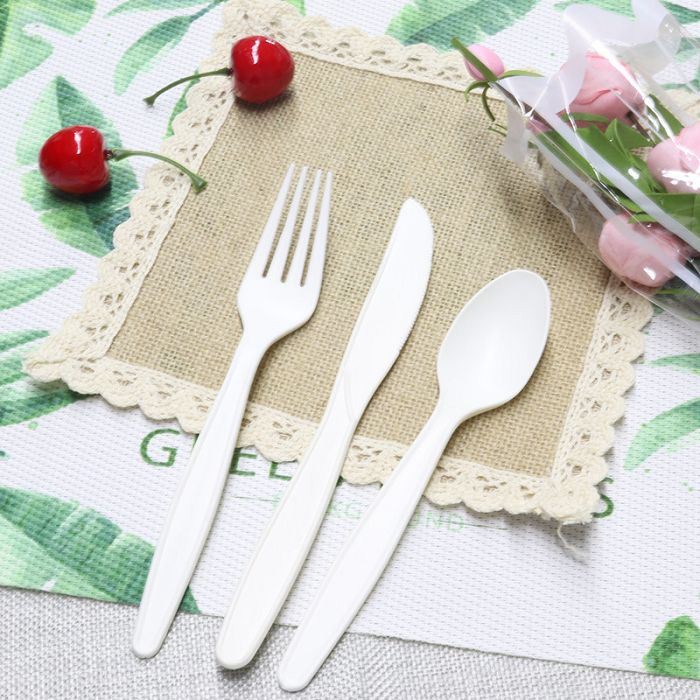Can PSM Forks be used in textile industries?
Aug 18, 2025
Hey there! I'm a supplier of PSM Forks, and I've been getting a lot of questions lately about whether PSM Forks can be used in textile industries. Well, let's dive right into it and find out if these forks have a place in the world of textiles.
First off, let's talk a bit about what PSM Forks are. PSM stands for Plant Starch Material, and these forks are made from natural plant starches. They're part of a line of Environmentally Friendly Disposable Utensils that are not only good for the planet but also have some unique properties. Along with forks, there are also Plant Starch Knife and PSM Spoons in the range.
Now, when we think about textile industries, we usually picture big machines, different types of fibers, and processes like weaving, knitting, and dyeing. So, how could a fork possibly fit into this picture?
One aspect to consider is the properties of the material. PSM Forks are made from plant starches, which are polymers. Polymers are also widely used in the textile industry. For example, some synthetic fibers like polyester are polymers. The structure of the plant - based polymers in PSM Forks could potentially have some interesting applications.
In the textile manufacturing process, there are steps where materials need to be handled and manipulated. The smooth surface of PSM Forks could be useful in some manual or semi - manual processes. For instance, when sorting small pieces of fabric samples, a PSM Fork could be used to pick up and separate them without causing damage. Unlike metal or plastic tools, the plant - based material is less likely to scratch or snag the delicate fabric.


Another area where PSM Forks might find a use is in the dyeing process. Sometimes, it's necessary to stir or move fabric pieces around in the dye bath. A PSM Fork could be used for this purpose. Since it's made from a natural material, it's less likely to react with the dyes and chemicals used in the process. This is a big advantage as it reduces the risk of contamination and color variations in the fabric.
Let's also think about the environmental aspect. The textile industry is under increasing pressure to become more sustainable. PSM Forks, being biodegradable, fit right into this trend. If they're used in the textile manufacturing process, at the end of their useful life, they can be disposed of in an environmentally friendly way. They'll break down naturally, unlike traditional plastic or metal tools that can take hundreds of years to decompose.
However, there are also some challenges. PSM Forks are not as strong as metal or some high - performance plastics. In heavy - duty textile processes, such as large - scale fabric cutting or moving large rolls of fabric, they might not be up to the task. The plant - starch material could break or deform under high stress.
The moisture resistance of PSM Forks is another factor. In textile industries, there are often processes that involve water or high humidity. If the forks get wet, they could lose their shape or strength. So, they would need to be used in dry or controlled - moisture environments.
In the area of quality control, PSM Forks could have a role. They could be used to check the texture and consistency of fabrics. By gently running the fork over the fabric surface, workers can feel for any irregularities, like bumps or loose threads. This is a simple but effective way to ensure the quality of the final product.
When it comes to cost, PSM Forks might be a viable option for some textile companies. Since they're made from natural plant starches, the raw materials are relatively inexpensive. And with the growing demand for sustainable products, the cost of manufacturing these forks is likely to come down even further.
Let's look at some real - world examples. In small - scale artisanal textile workshops, PSM Forks could be a great addition. These workshops often focus on handmade and sustainable products. The forks could be used in various stages of the production process, from sample preparation to final finishing.
In larger textile factories, they could be used in non - critical processes. For example, in the packaging department, they could be used to separate different fabric pieces before they're packed. This would add a touch of sustainability to the overall operation.
To sum it up, while PSM Forks may not be a one - size - fits - all solution for the textile industry, they definitely have some potential applications. Their unique properties, environmental friendliness, and relatively low cost make them worth considering.
If you're in the textile industry and think PSM Forks could be useful for your operations, I'd love to have a chat with you. Whether it's about finding the right type of fork for your specific process or discussing how to integrate them into your workflow, I'm here to help. Let's explore the possibilities together and see how we can make your textile manufacturing more sustainable and efficient.
References
- Textile Industry Handbook: An overview of textile manufacturing processes and materials.
- Polymer Science for Beginners: Information on the properties of polymers, including plant - based ones.
